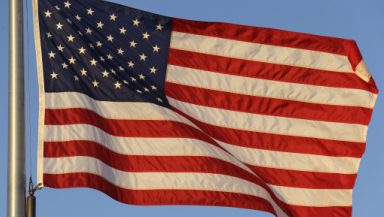
A New Jersey town cancelled a federal citizenship ceremony last week after immigration officials refused to allow an opening prayer.
Carteret, New Jersey was invited to host the U.S. Citizenship and Immigration Services' (UCIS) naturalization ceremony, but the event was moved to Newark after Carteret Mayor Daniel Reiman insisted on including the prayer.
The ceremony, which naturalized 30 people on Saturday, requires citizens to recite the Pledge of Allegiance- which contains the words "under God," - and an oath that contains the phrase "so help me God." UCIS officials say that a prayer, however, defies the department's policy.
UCIS spokesperson Katie Tichacek Kaplan said that the omission makes sure the ceremonies are "conducted in a meaningful manner which is welcoming and inclusive and excludes political, commercial and religious statements," according to the Associated Press.
Mayor Reiman told UCIS that opening government meetings and ceremonies with a prayer are a tradition in Carteret, and that the prayer would be nondenominational, but the agency refused to allow the moment of reverence.
Reiman opted out of the ceremony.
"I told they're no longer allowed to use city hall," he told The Star-Ledger.
The mayor also told the Associated Press that UCIS can "host its godless ceremony someplace else."
On May 5, the Supreme Court allowed prayers in local government meetings, but UCIS argued that the ruling does not apply to federal agencies.
American Atheist spokesman Dave Muscato said the immigration department made the right decision.
"The major reason people come here is religious freedom," Muscato told The Star-Ledger. "The vision of the Founding Fathers is that the government doesn't dictate your beliefs for you."
He also contended that there is no such thing as a nondiscriminatory prayer. "You can call it nondenominational, but there's no such thing as a prayer that's inclusive of everyone," Muscato said. "Prayer is by definition exclusive to non-religious people."
Reiman called the agency's decision a shame. "For them to take that away is unfortunate, and I think it's a disgrace," he told The Star-Ledger. "They're welcome to go somewhere else."













